Balance
Visual Balance is the intuitive optical equilibrium between parts of a composition. Visual balance cannot be measured and is a component that is felt. Each figure in composition has a certain “visual weight” – bright colors typically appear lighter in weight than dark colors. Balance can be symmetrical (see also Symmetry) and asymmetrical (see also Asymmetry). Asymmetrical balance occurs when elements are not mirrored across an axis within the composition and tends to be interpreted as more dynamic than symmetrical balance. Asymmetrical balance can be visualized like a seesaw with a child at one end and an adult near the center.
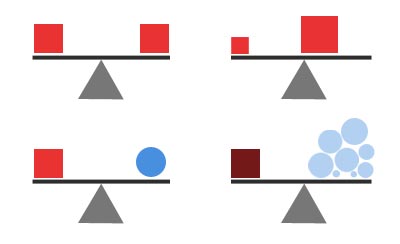
Symmetrical balance on the left, asymmetrical balance on the right. There is an intuitive sense of visual weight to each element that is based on one's own experiences with the physical structures of the world (such as gravity).

Symmetrical Balance
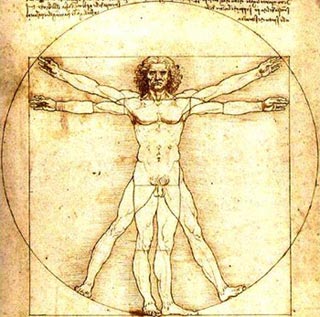
Symmetrical Balance
Leonardo Da Vinci. Vitruvian Man.
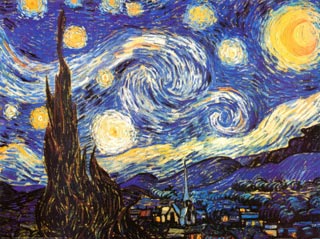
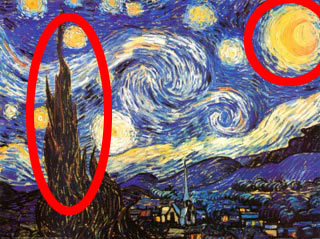
Asymmetrical Balance
Van Gogh. Starry Night.

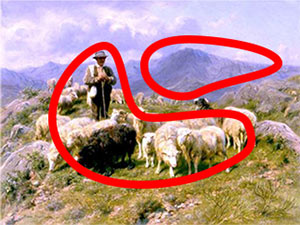
Asymmetrical Balance
Rosa Bonheur. Shepherd of the Pyrenees. 1888.